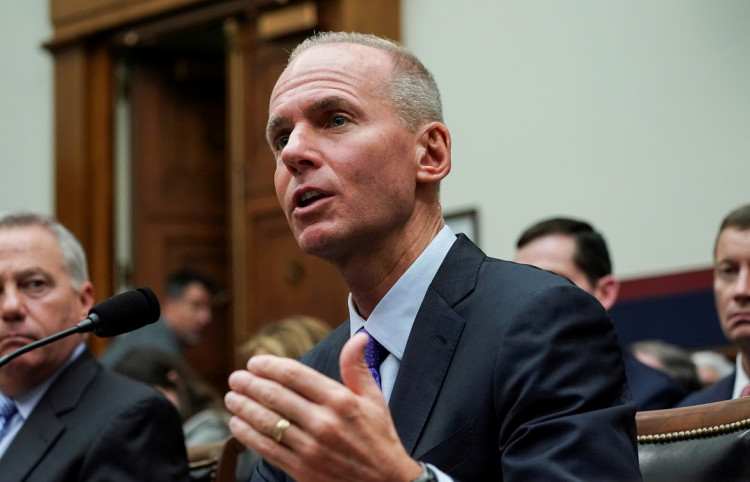Lawmakers intensified their inquisition into Boeing CEO Dennis Muilenburg's compensation following his acknowledgment of key mistakes that led to the crash of two of the company's Boeing 737 MAX airplanes. The CEO was hammered with questions at a hearing on Wednesday that aimed to investigate the circumstances that led to the crashes in Indonesia and Ethiopia that killed 346 people.
Despite aggressive questions pointed at the executive and his lapses, Muilenburg repeatedly stated during the hearing that he was not going to be stepping down from his position despite what had happened. The hearings with both the House of Representatives and the Senate are the highest-profile probes into commercial aviation safety in recent years.
The hearings have also managed to put added pressure on the world's largest commercial jet manufacturer, which has been trying to mitigate and repair the damage that has been done by the crashes that had resulted in an eight-month safety ban on its jets. The global groundings of its planes have cost the company billions of dollars in losses, compounded by canceled orders and the costs of ongoing litigations.
Attending the hearing on Wednesday were some of the family members of the victims of the crashes. During the start of the hearing, Muilenburg directly addressed the family members and apologized to them for the lives that have been lost.
As the hearing intensified, lawmakers began throwing aggressive questions at Muilenburg involving his compensation. Representative Steve Cohen from Tennessee questioned the CEO's pay and what accountability meant to him. The lawmaker questioned if there was a cut in his pay or if he volunteered to work for free given that the lives were now gone but his salary remained the same.
Muilenburg defended himself and other executives and stated that it is no longer about the money and that they will not be getting any bonuses this year due to what had happened.
The questioned regarding the executive's pay came after the company was questioned for its "serious quality issues." Boeing was accused of placing more importance on profits over quality and safety. The hearing also focused on Boeing's MCAS anti-stall system, which was the main cause of the two crashes. The MCAS system forced the planes to dive down despite efforts from the pilots to take control.
When a number of documentary pieces of evidence were presented by lawmakers to Muilenburg, the CEO finally admitted that mistakes were made on Boeing's part. Since the crashes had occurred, Boeing has largely evaded any form of acknowledgment that it was to blame for the incidents. The company instead tried to stir the issue towards its efforts to enhance safety in its future products.






